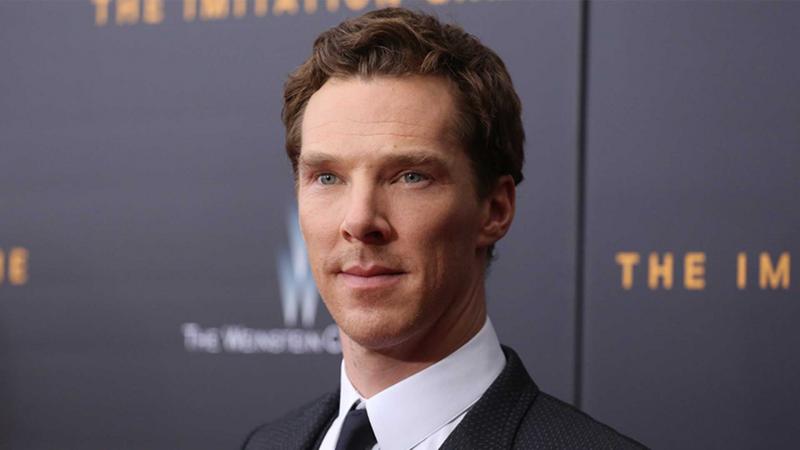Shakira Speech: The Power of Education
Learn English with Shakira. Shakira’s powerful speech at The 23rd AnnualCrystal Awards. The Colombian singer and songwriter talks about the power of education to break down social barriers and create opportunities for all children. It must be available to all children without any barriers like language or financial obstacles.
Shakira Isabel Mebarak Ripoll is a Colombian singer, songwriter, dancer, record producer, choreographer, and model who emerged in the music scene of Colombia and Latin America in the early 1990s.
In this speech, she also quotes: “I’ve seen what education can do, what the investment in education can do. Miracles! And believe me, there is nothing more fun and satisfying than seeing a child who had almost no possibilities to succeed, flourish and thrive and perform well in life.”
– English Speeches with big subtitles. Watch, learn, and share –
Shakira:
“You can’t achieve anything in life without a small amount of sacrifice.” Shakira
Shakira – FULL
Download available
for Plus Members
🎯 1000+ English files (PDF, MP3, Lessons)
PDF Transcript
Access the full speech in an
easy-to-read PDF format.
Audio Version
Listen and download clear,
high-quality MP3 recordings.
English Lesson
Includes vocabulary
and grammar practice.
Offer ends in:
01
Days
:
15
Hours
:
29
Mins
:
42
Secs
Offer ended.
TRANSCRIPT:
Download available
for Plus Members
PDF Transcript
Access the full speech in an
easy-to-read PDF format.
Audio Version
Listen and download clear,
high-quality MP3 recordings.
English Lesson
Includes vocabulary
and grammar practice.
Offer ends in:
Offer ended.
“Hilde Schwab:
Shakira receives the 2017 Cristal Award for her leadership in advancing early childhood education. Of course, we all know Shakira as one of the most successful Latin singers with over 60 million albums, sold numerous MTV, Grammy, and Billboard Music Awards for songs and albums that are on the playlist of people around the world.
At the same time, Shakira is a passionate advocate for education, particularly early childhood development. In 1997, at age 18, she founded the Pies Descalzos Foundation, which develops support programs to improve the education, nutrition, and health of the most vulnerable children in her native Colombia.
Shakira was appointed the UNICEF goodwill ambassador in 2003, advocating to ensure that all children have access to quality education and encouraging the investment in early childhood development. In 2011, President Obama appointed Shakira to his Advisory Commission on Educational Excellence for Hispanics.
Shakira, would you please join me on stage?
Shakira:
Thank you so much. Thank you for the honor of this award and for the opportunity to speak to you all. Today, we know more than ever about the early years of child development, especially that of the brain, the brain of a child who’s nourished and nurtured read to, and played with. Protected from factors like stress and conflict has a best chance of developing its full potential because it’s proven that children who receive proper care, nutrition, and stimulation in the first five years do much better in school and in life.
Sadly, this is not the case in my country or in so many other countries in the developing world where being born into poverty means never breaking out of it. We should be devastated that in 2017 there are still 250 million kids under five who are still at risk, who will likely be stunted physically and intellectually.
Now, take that in for a second. We’re talking about newly the population of an entire country, the size of the US. This is a tragedy for those children and an epic, epic failure for all of us. If we don’t attend to these kids in time, we’re talking about intergenerational cycles of poverty and inequality.
And the wider the gap of inequality grows, the harder it becomes to reach across it. And the more numerous the faces of those born into poverty, the more difficult to see and empathize with each individual and recognize that if not for the pure geography of where they were born, they could be one of our children.
This should make us all furious. They should make us all want to take action because we all have a stake in the outcome. The world is facing some serious challenges. By 2050, massive population growth is expected, and we will need to feed 9 billion people, or we will risk being at the threshold of conflict and starvation.
Will this generation of kids be ready to take on the task of eliminating malnutrition and providing food security? Will they be prepared to come up with solutions and innovations to climate change, unemployment and the most complex issues that our society faces?
Who will help us manage our resources more efficiently and sustainably going forward from here to the next 20 years? It’s your kids, it’s Milan and Sasha, my kids. And those 250 million kids at risk who need us to tip the scales back in their favor.
Today’s babies will drive tomorrow’s business. Tomorrow’s… Today’s babies with their future productivity will fill tomorrow’s economies. Their capacity to contribute, will shape tomorrow’s societies, will solve tomorrow’s problems. All of you, all of you here today have a critical, critical role to play.
So what can you do? Let’s face it, in this room, there are some of the most powerful people in the world and definitely, I’m convinced that you know what it means to be ahead of the curve and you can be tremendously influential.
We need to apply the brains and strategies of business and the assets and the human resources and the talents of your companies to do social good and to solve social problems. All of us need to pick up where governments leave off.
That’s the only way. And that said, it’s not about letting governments off the hook on the countries about reengaging them. But we have to take the first steps because as business leaders, as businesspeople, we have the ideas, the agility, the organizational skills, the manpower, the female power, of course. When we started building schools in Colombia, we chose the most remote areas where there was literally nothing. There were no paved roads, no potable water, no electricity. And where historically the government had checked out, we checked in.
And we decided to build not only schools, but state-of-the-art schools. And we decided to include ECD as a key component. And we created comprehensive programs, comprehensive… a comprehensive model that included as well school feeding programs, parent and teaching training.
We engaged the government as our strategic partner, and we made it nearly impossible for them to say, ‘No’ to doing their part. So the transformation in these communities could be seen immediately from the jobs generated to the hope-inspired, but the improvements to the infrastructure were jaw-dropping.
Electricity and potable water were made accessible. Roads were paved. Malnutrition plummeted. And the best part of all, the students responded academically so well. That, now those kids who could have been recruited by guerrillas or drug traffickers are on the way to the university or are in the university as we speak or are thriving their communities.
So now I don’t have to call the government as often, thank God. No. Now they call us wanting to build more schools, wanting to invest more. So I’m not suggesting it’s easy. But there is an exit strategy, a strategy to poverty, and it’s getting those 250 million kids who are at risk, who need access to quality ECD programs.
So they get in school and stay in school. We have to push governments to invest more, honestly. We have to invest in campaigns for public awareness. We have to make access to pre-K education free and we have to create a fund for education just like AIDS and Malaria and Tuberculosis have their own fund.
I know I can sound vehement as Bono once called me, and because I am. He’s completely right, and I know I can drive some people nuts with my insistence, but it’s only because I’m so passionate, and the reason why I am so passionate is because I’ve seen it with my own eyes.
I’ve seen what education can do, what the investment in education can do. Miracles! And believe me, there is nothing more fun and satisfying than seeing a child who had almost no possibilities to succeed, flourish and thrive and perform well in life.
For me, it beats even winning a Grammy anyway. We can’t press pass and ask those kids to wait to grow up until we have it all figured out. There isn’t a moment to lose. We need to invest in humans.
It’s the smart thing to do, the strategic thing to do and the just thing to do. Thank you.”[/read]
Shakira
Follow us on social media:







